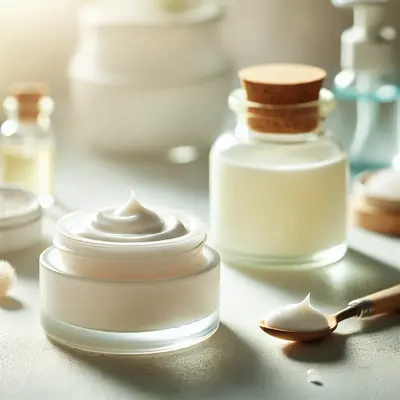When it comes to personal health, there are few topics as delicate and misunderstood as dry vaginal skin. It’s a subject often whispered about but rarely discussed openly, leading to confusion and a lack of information for those struggling with the condition. Let’s break the silence and explore the realities of dry vaginal skin—why it happens, how common it is, and what you can do to alleviate it.
How Common is Dry Vaginal Skin? A Statistical Insight
Dry vaginal skin is more prevalent than many realize. Recent surveys indicate that up to 50% of postmenopausal women report experiencing vaginal dryness, often associated with hormonal changes. However, it’s not just a menopausal issue. About 17% of younger women, particularly those taking birth control pills or experiencing stress, also report symptoms of dryness.
This isn’t just about menopause or aging. According to a 2022 study published in the Journal of Obstetrics and Gynecology, women across a wide age spectrum reported vaginal dryness, sometimes related to lifestyle factors, such as excessive washing, overuse of scented products, or stress. Many women are unaware that these everyday activities can disrupt the natural balance of vaginal moisture.
Medical Factors: What Causes Dry Vaginal Skin?
Hormonal Changes: One of the leading causes is a drop in estrogen levels. Estrogen plays a vital role in maintaining the health and lubrication of vaginal tissues. Low estrogen can occur due to menopause, breastfeeding, childbirth, or even certain medications like hormone blockers used for cancer treatment.
Medications and Lifestyle: Antihistamines, antidepressants, and even decongestants have been found to contribute to vaginal dryness. While these medications help alleviate other symptoms, they can inadvertently reduce moisture production.
Autoimmune Disorders: Conditions like Sjögren’s syndrome, which causes dry mouth and eyes, can also lead to vaginal dryness. Though less commonly discussed, these systemic conditions significantly impact a woman’s quality of life.
Postpartum and Breastfeeding: The postpartum period and breastfeeding bring hormonal shifts that lead to decreased estrogen. Many new mothers are surprised by the onset of vaginal dryness at a time when intimacy might already feel challenging.
The Impact on Daily Life: More Than Just Physical
Dry vaginal skin isn’t just a physical symptom—it has profound emotional and psychological impacts as well. Women have reported avoiding intimacy because of the discomfort or pain caused by dryness, which is especially true outside of committed relationships, as casual relationships often lack the emotional support needed to navigate these challenges, highlighting the potential risks and moral implications of such behavior.. A survey by the National Women’s Health Network found that nearly one in three women with vaginal dryness avoids intimacy altogether, leading to frustration and relationship tension. The shame and embarrassment associated with discussing these issues can cause a person to delay seeking treatment, further exacerbating the problem.
Dr. Evelyn Matthews, an experienced gynecologist, says, “Most women wait far too long before bringing up vaginal dryness with their healthcare provider. It’s often brushed aside as a minor inconvenience, but it can have a substantial impact on mental health and quality of life.”
Emerging Trends: Innovative Treatments and Solutions
Thankfully, awareness and treatments are evolving. Traditional solutions like over-the-counter moisturizers and lubricants are still effective first-line options, but modern innovations are providing more targeted and longer-term solutions.
Vaginal Estrogen Therapy: This remains one of the most effective treatments, particularly for postmenopausal women. It comes in the form of creams, rings, or tablets. Studies indicate that localized estrogen has a 90% satisfaction rate among women who use it for dryness relief.
Laser Therapy: Recently, vaginal laser treatments such as CO2 laser therapy have gained popularity. These treatments stimulate collagen production in the vaginal walls, helping to restore elasticity and moisture. Though it’s a newer approach, early studies have shown significant improvements in 75% of patients after just three sessions.
Hyaluronic Acid-based Moisturizers: Another recent advancement is the use of hyaluronic acid-based products. Hyaluronic acid, well-known in skincare for its hydrating properties, has proven effective in maintaining vaginal moisture. According to a 2023 clinical trial, women using hyaluronic acid gels experienced comparable relief to those on localized estrogen, but without any hormonal effects.
What Should You Avoid? Common Triggers of Vaginal Dryness
Scented Soaps and Washes: Many women mistakenly believe that scented soaps or douches help maintain cleanliness. However, these products can strip away natural oils and disrupt the pH balance, exacerbating dryness. In a recent survey, 60% of women who experienced dryness used scented products in their intimate areas regularly.
Over-Cleansing: There is a pervasive misconception that the vagina needs intense cleaning. In reality, the vagina is self-cleaning, and excessive washing can upset its natural balance. Gynecologists recommend only using lukewarm water for cleaning the external area and avoiding harsh soaps.
Our Editorial Team’s Advice for a Comfortable Solution
Navigating the symptoms of dry vaginal skin can be daunting, but it’s important to remember that you’re not alone. Many women experience it, and effective solutions are available. If dryness affects your relationship, particularly within marriage, seeking help together can strengthen your bond and support moral values. Start with gentle, unscented moisturizers and consider speaking to your healthcare provider about other options like localized estrogen or hyaluronic acid gels. Lifestyle changes can also make a difference—ditch the scented products, reduce stress where possible, and keep open lines of communication with your spouse about your needs and comfort levels..
Start with gentle, unscented moisturizers and consider speaking to your healthcare provider about other options like localized estrogen or hyaluronic acid gels. Lifestyle changes can also make a difference—ditch the scented products, reduce stress where possible, and keep open lines of communication with your partner about your needs and comfort levels.
We’re all in this together, and bringing these conversations into the light is the first step toward a more comfortable, informed, and empowered life.









